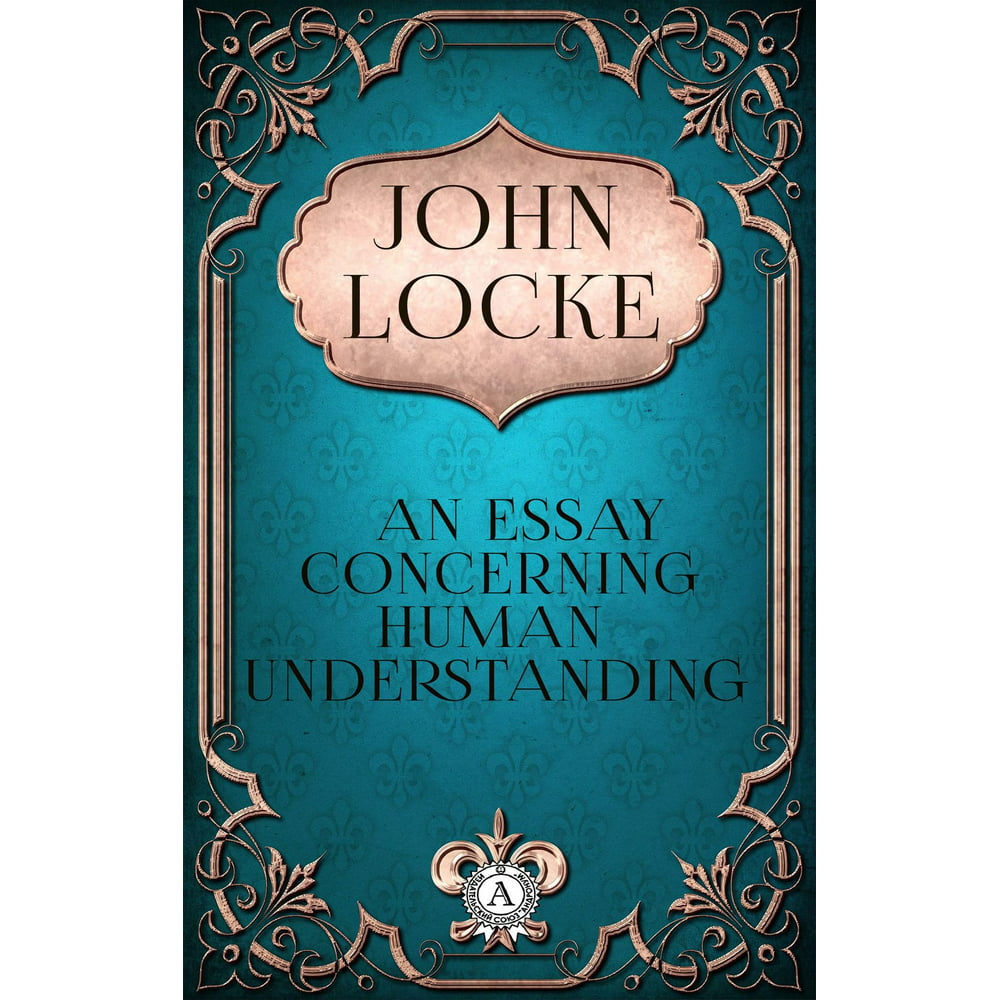Your password reset email should arrive shortly.
An Essay Concerning Human Understanding begins with a short epistle to the reader and a general introduction to the work as a whole. Following this introductory material, the Essay is divided into four parts, which are designated as books. Book I has to An Essay Concerning Human Understanding: In Four Books, Volume 1 An Essay Concerning Human Understanding: In Four Books, John Locke: Author: John Locke: Publisher: H. Woodfall, Original from: the New York Public Library: Digitized: Sep 25, Export Citation: BiBTeX EndNote RefMan An Essay Concerning Human Understanding Know about John Locke's A Letter Concerning Toleration (), advocating religious toleration A look at A Letter Concerning Toleration (), written by John Locke, who advocated religious toleration

Reset Password
· The Essay is an examination of the nature of the human mind and its powers of understanding. Locke begins in Bk I by rejecting the doctrine of ‘innate ideas’, maintaining that all knowledge is based on experience. The objects of understanding are termed by him ideas, and Bk II provides an account of the origin, sorts, and extent of our ideas An Essay Concerning Human Understanding begins with a short epistle to the reader and a general introduction to the work as a whole. Following this introductory material, the Essay is divided into four parts, which are designated as books. Book I has to In An Essay Concerning Human Understanding, first published in , John Locke () provides a complete account of how we acquire everyday, mathematical, natural scientific, religious and ethical knowledge. Rejecting the theory that some knowledge is innate in us, Locke argues that it derives from sense perceptions and experience, as analysed and developed by
An Essay Concerning Human Understanding
Essay I John Locke i: Introduction Chapter i: Introduction 1. Since it is the understanding that sets man above all other animals and enables him to use and dominate them, it is certainly worth our while to enquire into it. The un-derstanding is like the eye in this respect: it makes us see and perceive all other things but doesn’t look in on An Essay Concerning Human Understanding begins with a short epistle to the reader and a general introduction to the work as a whole. Following this introductory material, the Essay is divided into four parts, which are designated as books. Book I has to An Enquiry Concerning Human Understanding is a book by the Scottish empiricist philosopher David Hume, published in English in It was a revision of an earlier effort, Hume's A Treatise of Human Nature, published anonymously in London in –Hume was disappointed with the reception of the Treatise, which "fell dead-born from the press," as he put it, and so tried again

Quick Reference
An Enquiry Concerning Human Understanding is a book by the Scottish empiricist philosopher David Hume, published in English in It was a revision of an earlier effort, Hume's A Treatise of Human Nature, published anonymously in London in –Hume was disappointed with the reception of the Treatise, which "fell dead-born from the press," as he put it, and so tried again · The Essay is an examination of the nature of the human mind and its powers of understanding. Locke begins in Bk I by rejecting the doctrine of ‘innate ideas’, maintaining that all knowledge is based on experience. The objects of understanding are termed by him ideas, and Bk II provides an account of the origin, sorts, and extent of our ideas An Essay Concerning Human Understanding is a philosophical work by the English thinker John Locke. The Essay argues that there are no innate ideas—that is, ideas present in the human mind at birth. Rather, experience creates ideas in our minds. It is often said by philosophers that Locke described the mind at birth as a “blank slate” (or, in Latin, a tabula

Share Link
· John Locke's classic work An Essay Concerning Human Understanding laid the foundation of British empiricism and remains of enduring interest today. Rejecting doctrines of innate principles and ideas, Locke shows how all our ideas, even the most abstract and complex, are grounded in human experience--attained by sensation of external things or reflection upon · The Essay is an examination of the nature of the human mind and its powers of understanding. Locke begins in Bk I by rejecting the doctrine of ‘innate ideas’, maintaining that all knowledge is based on experience. The objects of understanding are termed by him ideas, and Bk II provides an account of the origin, sorts, and extent of our ideas An Enquiry Concerning Human Understanding is a book by the Scottish empiricist philosopher David Hume, published in English in It was a revision of an earlier effort, Hume's A Treatise of Human Nature, published anonymously in London in –Hume was disappointed with the reception of the Treatise, which "fell dead-born from the press," as he put it, and so tried again
No comments:
Post a Comment